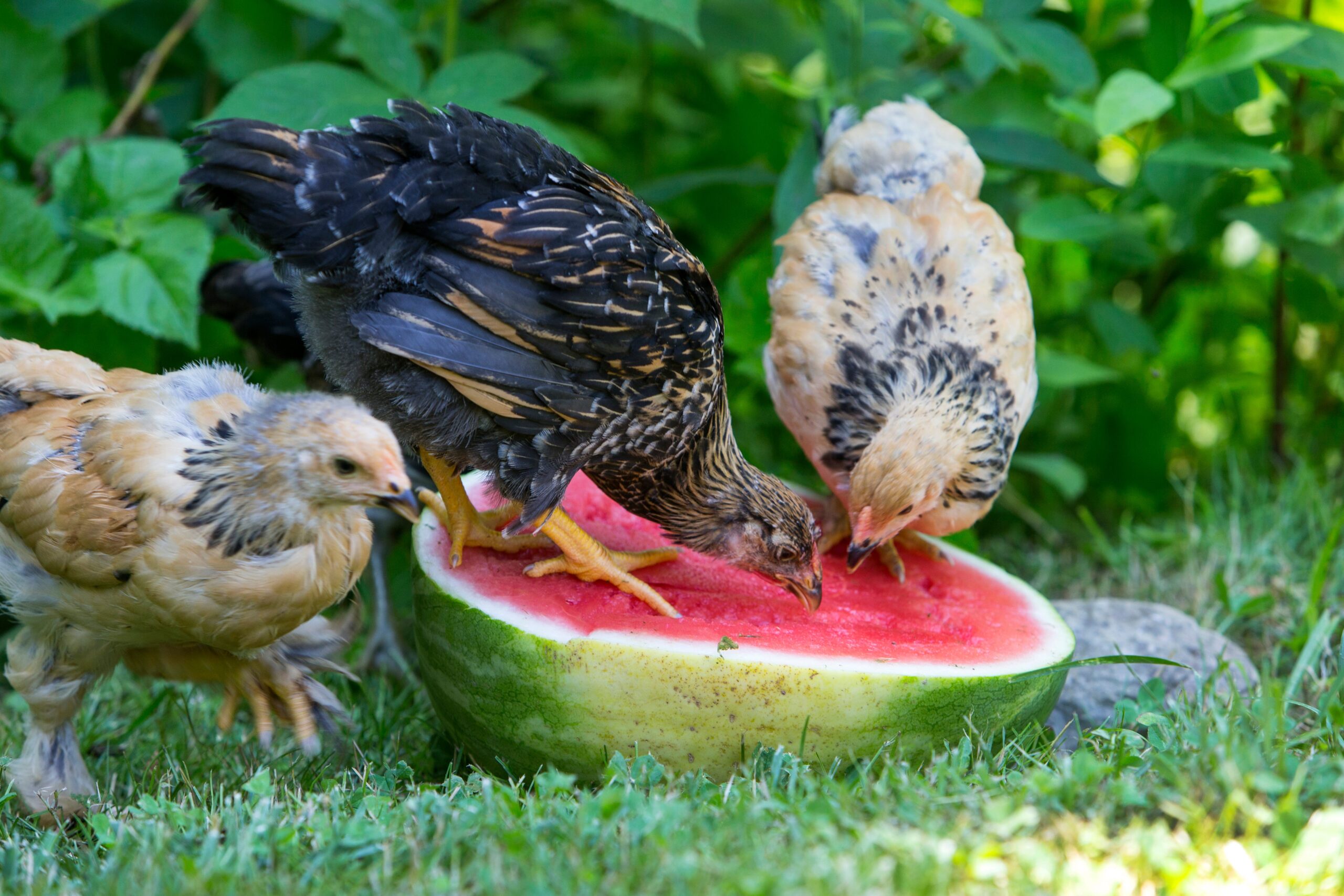Chickens are one of the most important sources of meat and eggs in many parts of the world. But keeping chickens healthy and productive requires proper nutrition and husbandry. And one of the best ways to do this is by giving them watermelon. Watermelon is a nutritious and tasty treat for chickens, and when used properly, it can improve their health and production. This guide will explain how to use watermelon for chickens in chicken husbandry, and the benefits it can bring.
Benefits of Watermelon for Chickens
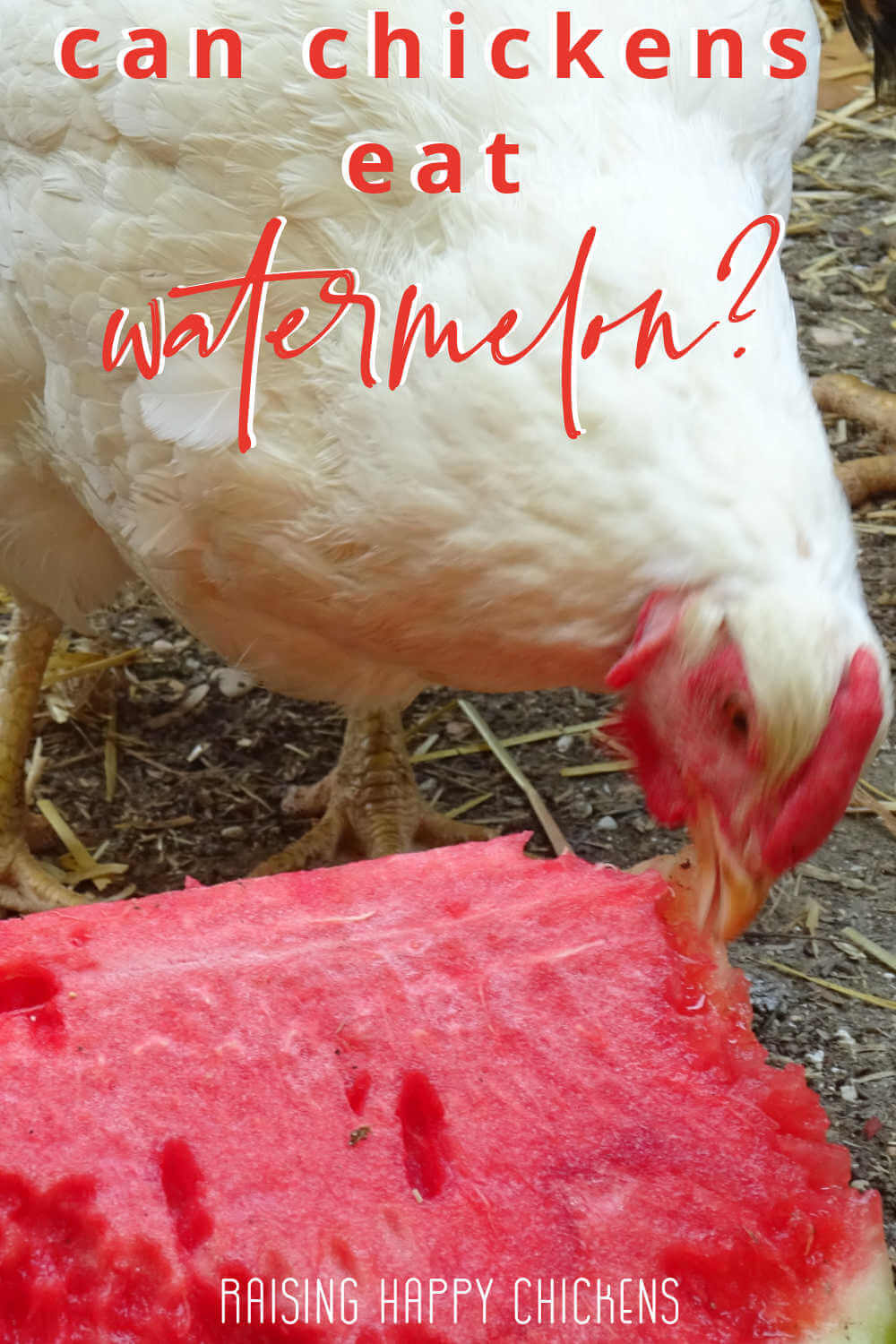
Nutritional Benefits
Watermelon is a highly nutritious fruit for chickens, providing them with vitamins, minerals, and essential amino acids. It is rich in vitamin A, which helps to maintain the health of the skin and the eggshells, and vitamin C, which helps to maintain a strong immune system. Watermelon also contains potassium and magnesium, which are important for muscle health and bone health. Watermelon is also a good source of dietary fiber, helping to keep chickens regular and reduce the risk of digestive issues.
Improved Health
Watermelon can help to improve the health of chickens by providing them with essential vitamins and minerals. It can help to reduce the risk of certain diseases, such as coccidiosis, by providing them with essential vitamins and minerals. Watermelon can also help to reduce the risk of egg binding, which can be caused by a lack of vitamin A. In addition, the dietary fiber in watermelon can help to reduce the risk of certain digestive disorders, such as proventriculitis.
Increased Production
Watermelon can also help to increase egg production in chickens. The vitamin A in watermelon helps to maintain the health of the eggshells, making them stronger and more capable of withstanding the weight of the egg. The potassium and magnesium in watermelon can help to improve muscle health, which can help to increase egg production. In addition, the dietary fiber in watermelon can help to keep chickens regular, which can help to increase egg production.
Can baby chicks eat watermelon? Yes, watermelon can be a safe and beneficial treat for baby chicks. The vitamins, minerals, and dietary fiber in watermelon can help to promote the health and growth of baby chicks. However, it is important to feed them small, bite-sized pieces of watermelon, as the large pieces can be a choking hazard.
What Age Can Chickens Eat Watermelon?
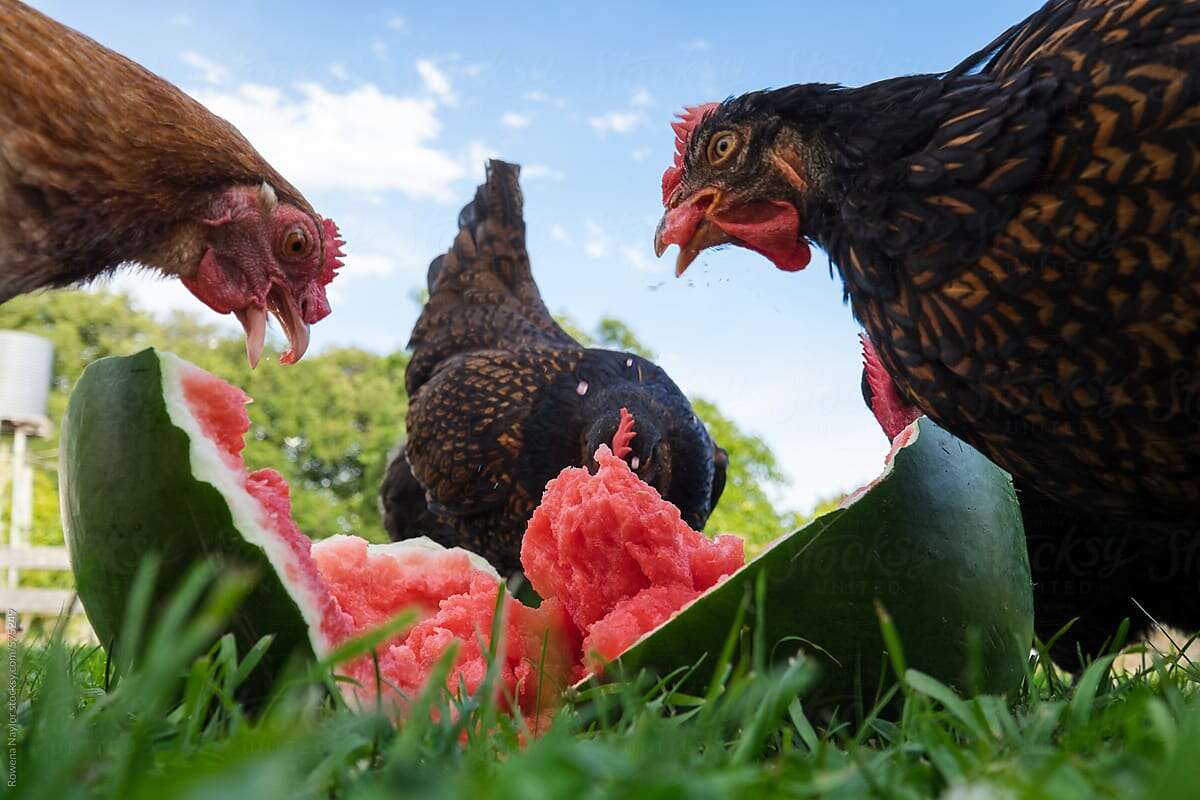
Chickens of all ages can enjoy watermelon, but it is best to introduce it to young chickens when they are just starting to lay eggs. Watermelon is an excellent source of antioxidants, vitamins, and minerals for chickens, so providing them with watermelon can help improve their overall health and egg production. The sugar content of watermelon is relatively low, so it is generally safe for chickens to consume in moderation. When offering watermelon to chickens, make sure to remove the seeds and rinds to avoid any potential choking hazards. Furthermore, it is important to note that chickens should not be fed too much watermelon, as it could lead to digestive issues.
When introducing watermelon to chickens, it is best to start with small amounts and increase the quantity gradually over time. Watermelon can be served as a snack or mixed in with other foods. It can also be frozen and thawed to provide a refreshing treat in the summer months. Regardless of how it is served, it is important to always ensure that the watermelon is fresh and free of any mold or bacteria.
In conclusion, watermelon can be a great addition to a chicken’s diet, and it is safe to offer to chickens of all ages. However, it is important to monitor how much watermelon is consumed and to always check that the fruit is fresh before feeding it to your chickens.
Keyword: Is Watermelon OK for Chickens?
Can Baby Chicks Eat Watermelon?
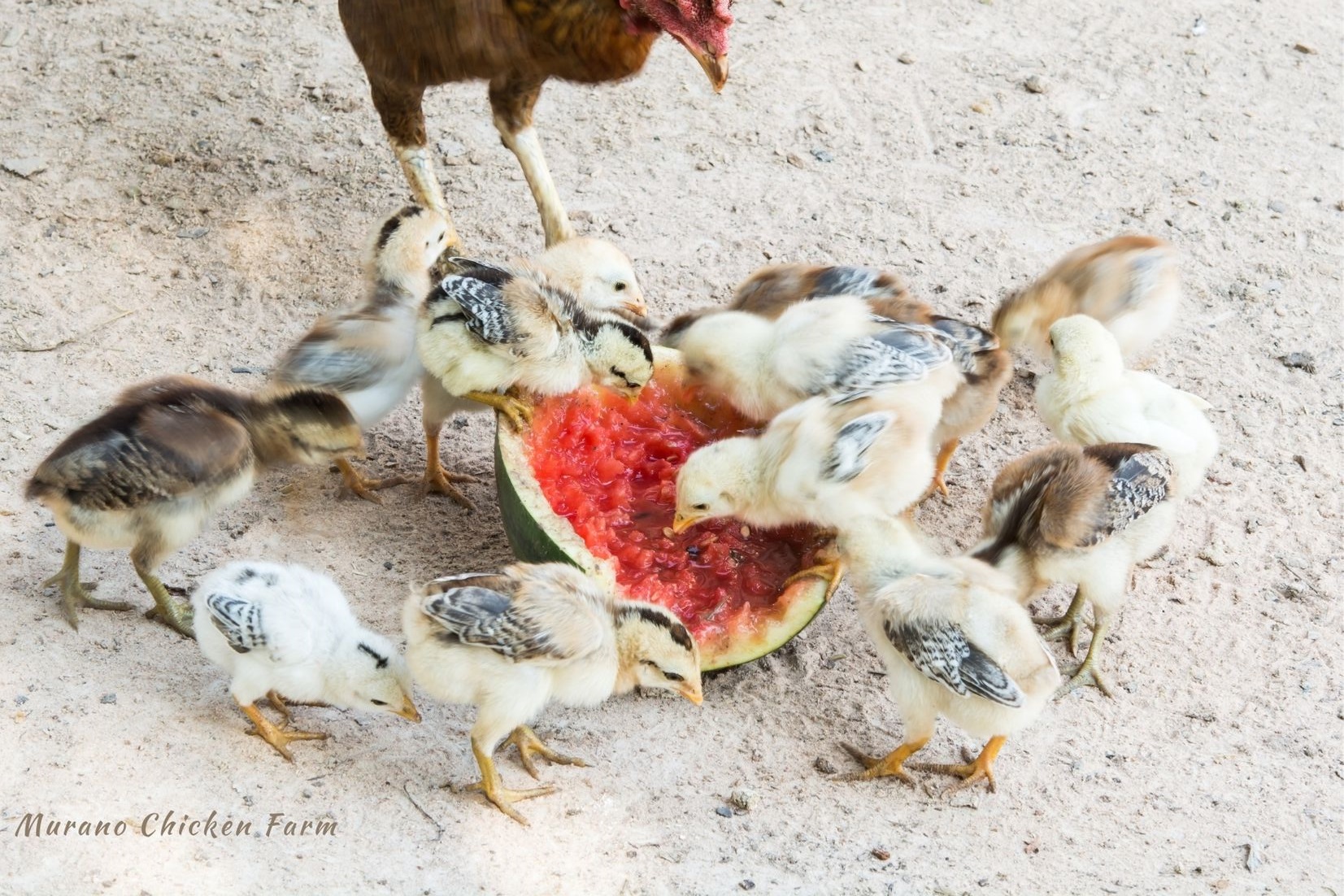
Watermelon is a beneficial and nutritious snack for baby chicks, as it provides essential vitamins, minerals, protein, and antioxidants. Watermelon is high in Vitamin A, Vitamin C and Vitamin B6, which are important for maintaining a healthy immune system and aiding in growth. Watermelon also contains high levels of potassium, magnesium, phosphorus and calcium, which are all important for proper muscle and skeletal development.
Watermelon can be fed to chicks in a variety of ways, such as in cubes, slices, or blended into a mash. When feeding watermelon to baby chicks, it is important to avoid the rind and seeds, as these can be difficult for baby chicks to digest.
Benefits of Feeding Watermelon to Baby Chicks:
- High in essential vitamins and minerals for healthy development
- Contains protein, which aids in muscle development
- High in antioxidants, which help protect against disease
- Provides a tasty and nutritious snack
Watermelon is a great snack for baby chicks and can be a great addition to their diet to help promote healthy growth and development. However, it is important to take care when feeding watermelon to baby chicks, as the rind and seeds can be difficult for them to digest.
Can hens eat watermelon? Yes, hens can eat watermelon and benefit from the same nutrition as baby chicks. However, make sure to remove the rind and seeds before feeding to hens.
Is Watermelon Safe for Chickens?
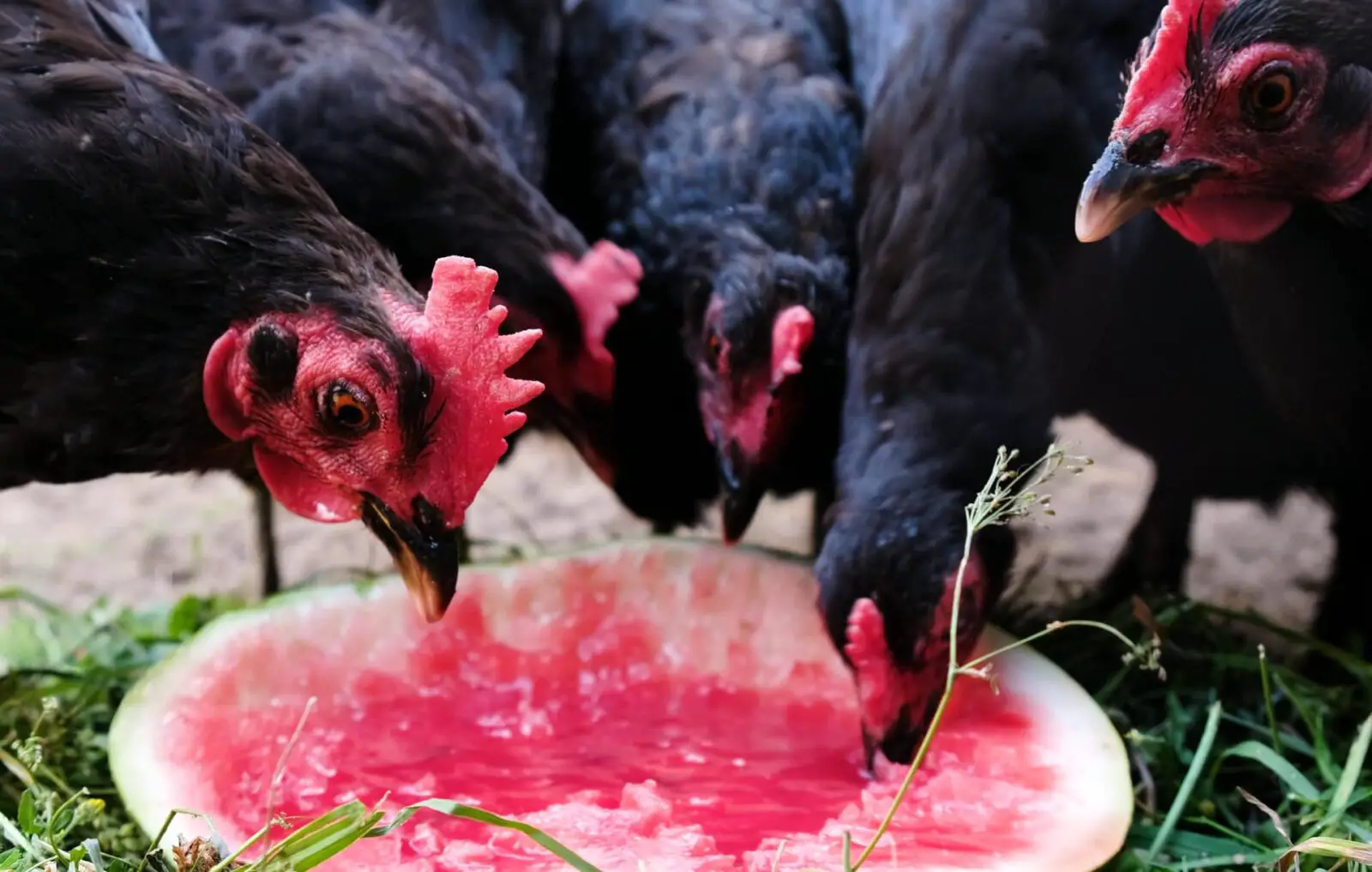
Watermelon is safe for chickens to consume and can provide a variety of health and production benefits. Here are some interesting facts about watermelon and how to use it in chicken husbandry:
- Nutrition: Watermelon is rich in essential vitamins and minerals, including Vitamin A, Vitamin C, potassium and magnesium. It is also a good source of dietary fiber, which can help with digestion.
- Hydration: Watermelon is composed of 92% water, making it an excellent source of hydration for chickens. It can help keep chickens cool in hot weather and prevent dehydration.
- Antioxidants: Watermelon is a good source of antioxidants, which help protect chickens from illnesses and reduce inflammation.
- Convenience: Watermelon is easy to feed to chickens. It can be served as chunks, slices or juice and is available in many supermarkets.
- Health Benefits: Watermelon can help prevent and treat a variety of health conditions in chickens, such as respiratory infections, digestive issues and egg production problems.
In conclusion, watermelon is a safe and nutritious snack for chickens that can provide a variety of health and production benefits. It is easy to feed and can help keep chickens healthy and productive.
How to Feed Watermelon to Chickens
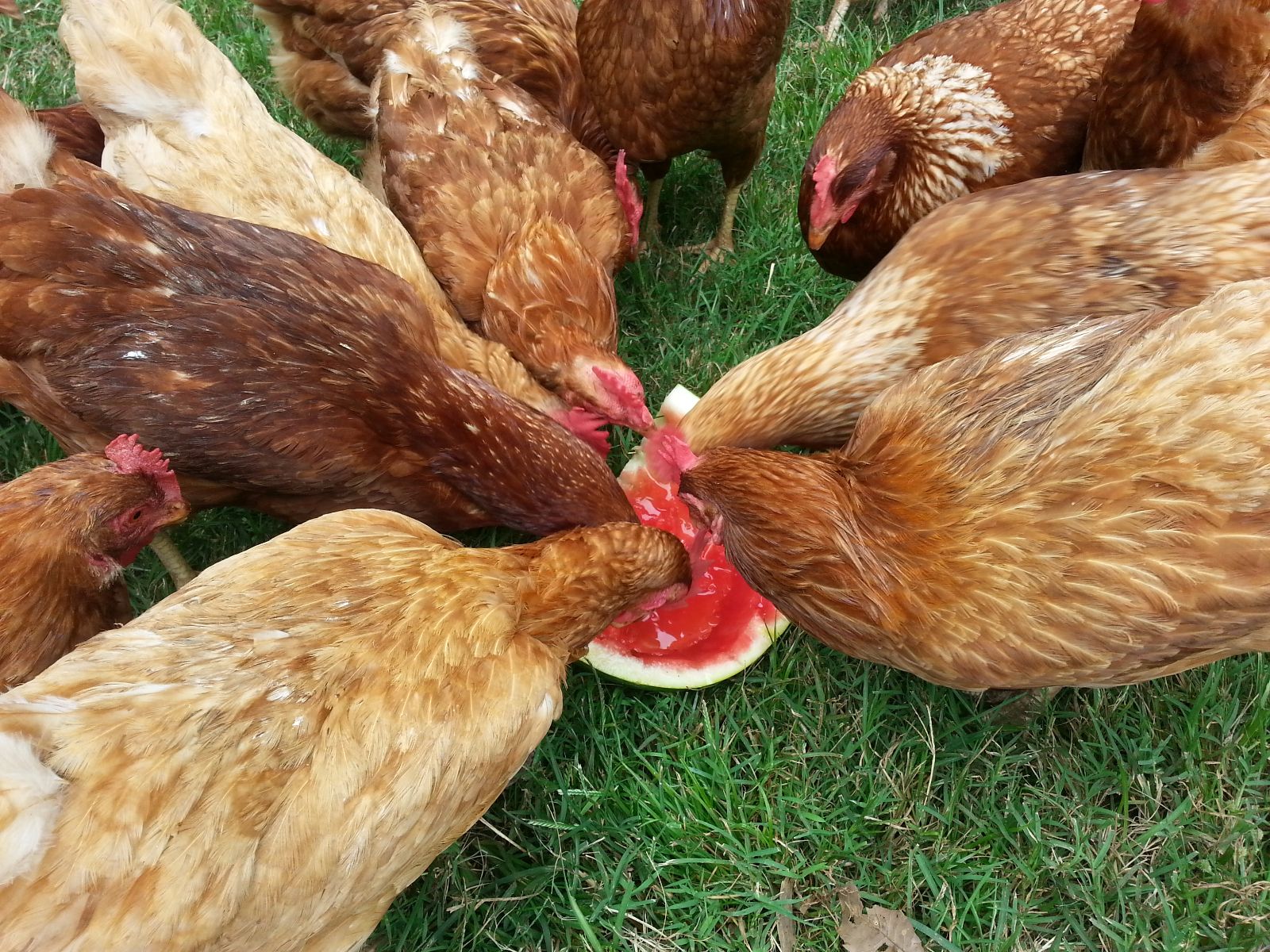
Can you feed watermelon to chickens? Yes, watermelon is a nutritious treat chickens can enjoy!
- Choose ripe, seedless watermelon. Cut into small cubes or slices.
- Feed watermelon to chickens in a separate bowl so they can enjoy it without competing with other birds.
- Never feed moldy or spoiled watermelon as it can make chickens sick.
- Make sure to feed chickens in moderation, as watermelon is high in sugar.
- Clean up any uneaten watermelon pieces to avoid attracting pests.
Watermelon is a great source of vitamins and minerals for chickens, and can provide them with a tasty and healthy treat!
What Parts of the Watermelon Can Chickens Eat?
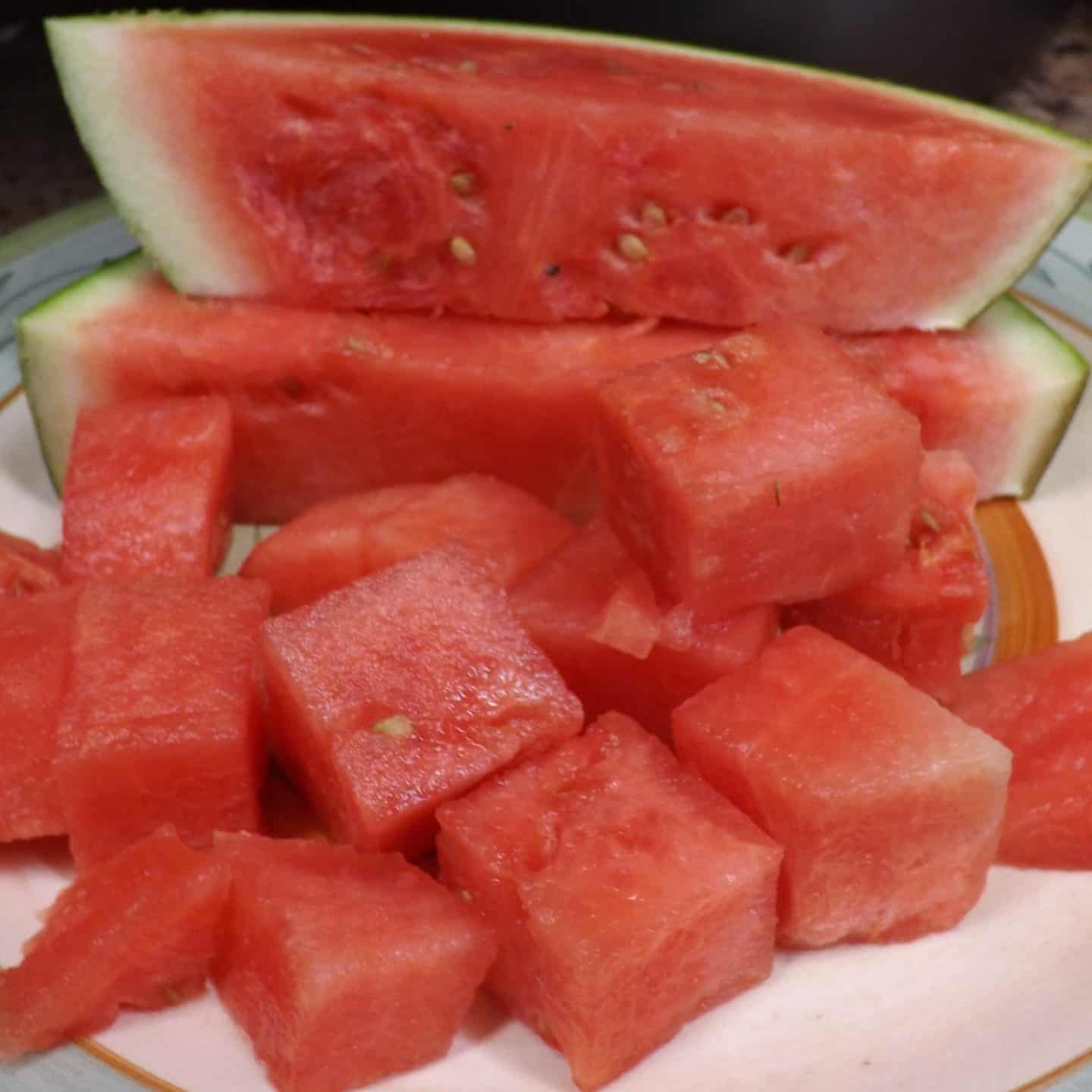
Chickens can eat watermelon in its entirety. From the rind to the pulp, watermelon is a healthy and nutritious treat for chickens. The nutritional benefits of watermelon for chickens include:
- High water content helps to keep chickens hydrated in hot weather.
- High in Vitamins A and C, which promotes good health.
- High in antioxidants which protect the body from disease.
- High in minerals such as potassium, magnesium, and iron.
When feeding watermelon to chickens, it is important to remove the seeds first, as they can be a choking hazard. If a chicken swallows a seed, it can cause an intestinal blockage. It is also important to cut the watermelon into small pieces so that the chickens can easily eat it.
Watermelon can also be used as a treat during training or as a reward for good behavior. The sweetness of the watermelon can entice chickens to do certain behaviors.
In addition to eating the watermelon, chickens can also benefit from drinking the juice. Drinking watermelon juice can help to replenish electrolytes and minerals that can be lost during hot weather. The juice can also help to keep chickens hydrated.
Overall, watermelon is a safe and healthy treat for chickens. It provides many nutritional benefits that can help to keep chickens healthy and happy.
What Precautions Should be Taken When Feeding Watermelon to Chickens?
Chickens can eat watermelon, but there are some precautions to take when providing it to them. Watermelon should be cut into cubes or slices so that it is easy for the chickens to eat. It should also be washed thoroughly before it is served, as it could have come into contact with dirt, pesticides, or other contaminants. Additionally, the watermelon should be served in moderation and never be allowed to spoil. Spoiled watermelon can cause digestive upset in chickens, and should not be offered to them. Finally, the seeds should be removed from the watermelon before serving, as they can also cause digestive upset in chickens.
Frequently Asked Questions
What Types of Watermelons Can Be Used to Feed Chickens?
Watermelons can provide chickens with essential nutrients, vitamins, and minerals. To ensure chickens receive the most nutrition, it is recommended to feed them watermelons with ripe fleshy pulp and a hard outer rind. Rinds can be used as a calcium source while the pulp and seeds can provide a source of protein. Additionally, consider selecting seedless varieties to reduce the risk of introducing weeds into the chicken’s enclosure.
Is it necessary to remove the rind before feeding to chickens?
Yes, it is necessary to remove the rind from watermelons before feeding them to chickens. Here are the reasons why:
- The rind of a watermelon is hard, and chickens may have difficulty digesting it.
- The rind contains a lot of fibers, which can cause digestive problems in chickens.
- The rind can be a choking hazard for small chicks.
- Rinds can also be contaminated with bacteria and parasites, which can make your chickens sick.
Therefore, it is important to remove the rind before feeding watermelons to chickens. You can either use a sharp knife or a vegetable peeler to remove the rind before feeding it to your chickens.
How Often Should Chickens Be Fed Watermelon?
Watermelons should be fed to chickens no more than once a week as a treat. An occasional slice of watermelon can provide a welcome treat for your chickens while also providing essential vitamins and minerals. It is important to only feed small amounts of watermelon each time and to be sure to remove any uneaten watermelon pieces to avoid attracting flies or other pests. It is also important to remember that watermelon is high in sugar and should not be used as a replacement for a balanced diet.
Are there any health benefits associated with feeding chickens watermelon?
Watermelon is a great source of nutrients for chickens, providing them with vitamins, minerals and antioxidants. It is rich in Vitamin C, potassium and beta-carotene, which can help protect chickens from disease and improve their growth rate. Watermelon is also a good source of fiber, which is beneficial for a healthy digestive system. Additionally, watermelon contains lycopene, which has been shown to have anti-inflammatory, anti-cancer and anti-oxidant properties. Feeding chickens watermelon can help improve their overall health and production.
Is Feeding Watermelon to Chickens Expensive?
- Costs: Watermelon is generally inexpensive and can be found in most grocery stores and farmers markets. Buying in bulk may provide additional savings.
- Feed Conversion Ratio: Feeding watermelon to chickens can improve their feed conversion ratio, resulting in fewer feed costs and higher production.
- Nutrition: Watermelon is nutritionally rich, providing essential vitamins and minerals that are beneficial for the growth and health of chickens.
Watermelon is an affordable option when it comes to feeding chickens. The feed conversion ratio is improved due to the nutritional value of the watermelon, and this helps to reduce feed costs. The vitamins and minerals found in watermelon also contribute to the overall health and production of chickens.
Conclusion
Watermelon is a great addition to a chicken’s diet and can have a positive impact on their health and production. It’s important to slowly introduce watermelon to chickens, as too much can be harmful. Be sure to offer it in moderation and in a variety of forms, such as fresh, cooked, or frozen. Watermelon provides a great source of vitamins and minerals, as well as hydration in the form of water. Incorporating watermelon into a chicken’s diet is simple, affordable, and can result in healthier and more productive chickens.
References
- Película, C. J., Veríssimo, M. E. G., Oliveira, P. S., & Oliveira, F. A. (2018). Watermelon as a source of feed for chickens. Ciência Rural, 48(11).
- Berrios, E. M., & Capper, J. L. (2013). Effect of watermelon by-product on performance and egg quality of laying hens. Poultry Science, 92(3), 750–756.
